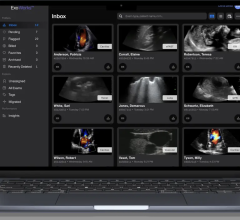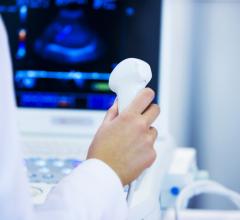June 24, 2014 — Researchers have announced the results of a study that used speckle-tracking echocardiography (STE) to analyze early phase one results from the multi-center COMPASSION trial, which seeks to examine the safety and efficacy of a new option to replace dysfunctional pulmonary valves in a subset of congenital heart disease patients. Traditional echocardiography has been an excellent diagnostic tool for decades, providing a safe, cost-effective and non-invasive way to guide treatment for a wide variety of heart disease patients. Advances in ultrasound technology in recent years, such as STE, continue to expand echo’s capabilities and increase its value in modern healthcare.
“Congenital heart disease patients now survive much longer than in the past, but often experience secondary heart problems later in life, such as pulmonary valve dysfunction. The COMPASSION trial is showing promising early results, and our study suggests that speckle-tracking echocardiography (STE) may be a more sensitive tool than traditional echo or MRI to predict outcomes in these patients,” said primary investigator Shahryar M. Chowdhury, M.D. Chowdhury is an instructor of pediatric cardiology at the Medical University of South Carolina (MUSC); he and his colleagues sought to evaluate the correlation between changes in STE measures of right ventricular (RV) function and changes in measures of exercise function after Sapien transcatheter pulmonary valve (TPV) implantation.
Researchers on the study, “Changes in Speckle-Tracking Echocardiographic Measures of Right Ventricular Function Correlate with Changes in Measures of Exercise Function after Percutaneous Implantation of the Edwards Sapien Transcatheter Heart Valve in the Pulmonary Position,” included Shahryar M. Chowdhury from the Medical University of South Carolina in Charleston, S.C.; Ziyad M. Hijazi and Qi-Ling Cao from Rush University Medical Center in Chicago; John T. Fahey from Yale-New Haven Hospital in New Haven, Conn.; John F. Rhodes from Miami Children's Hospital in Miami; Saibal Kar and Raj Makkar from Cedar Sinai Medical Center in Los Angeles; Michael Mullen from The Heart Hospital in London, United Kingdom; Kyle Bilhorn and Lazar Mandinov from Edwards Lifesciences LLC in Irvine, Calif.; and Girish S. Shirali from Children’s Mercy Hospital in Kansas City, Mo..
For more information: www.asecho.org


 July 19, 2024
July 19, 2024 








